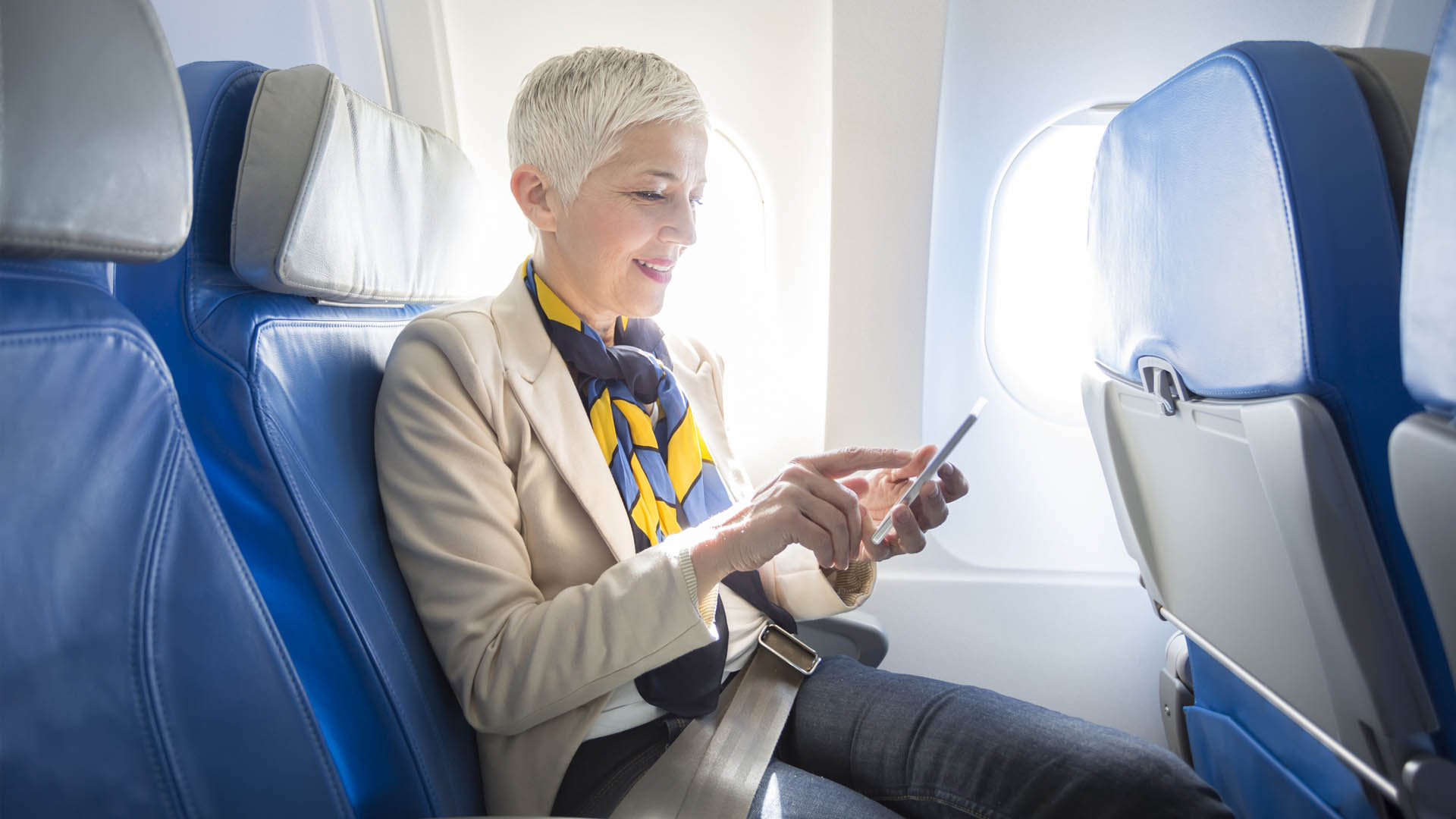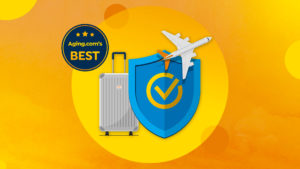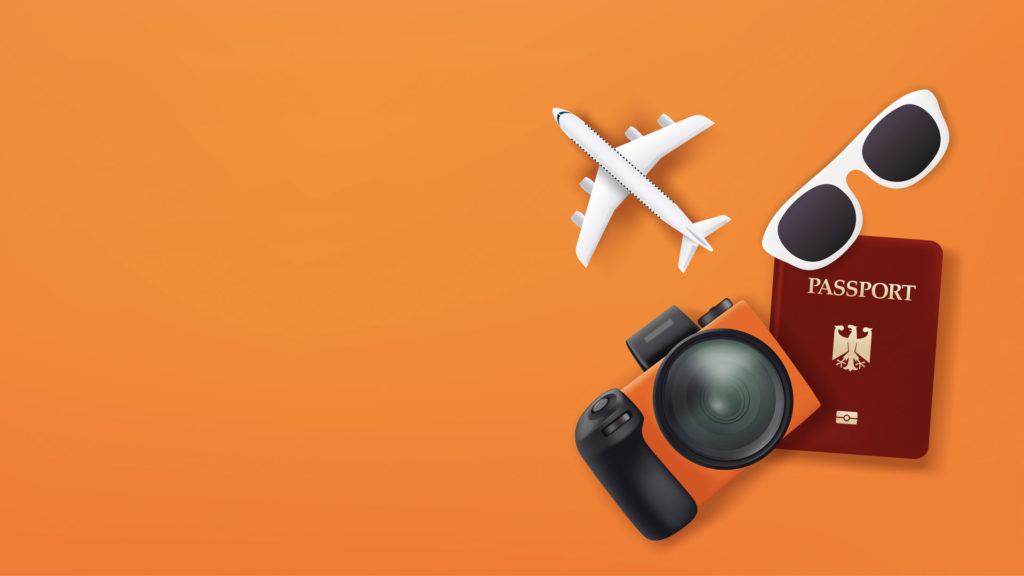
Air Travel – Airports, TSA Security, & Airlines
Your Rights, Accommodations and Perks As An Older Traveler

Before you board a plane, knowing your rights as an older traveler, as well as any perks you are entitled to, is important and will make your air travel experience better. Whether you are traveling overseas or a shorter distance from home, it is smart to plan ahead. Consider the following air travel recommendations and tips for older travelers.
Find What You Need
Save Money By Booking a Senior Fare
Most airlines offer discounted rates to travelers 65 and older. Before you book your flight, ask the airline about any savings their offer for older travelers. United Airlines offers tips for older travelers which include guidance for planning extra time at security and discounts for senior travelers over 65 years old. An AARP membership also includes select discounts for airfare for seniors.
Getting Assistance at the Airport
Navigating an airport, especially a larger-sized one like Chicago’s O’Hare Airport or an airport you are not familiar with, can be daunting. The good news is that there are ways you can make the airport experience more manageable, including:
Family Escort
Consider having a friend or family member escort you to / from your gate(s). You can be accompanied to your gate as well as met at the gate of your destination by a family member or friend. Your escort does not have to have an airline ticket. They need to show a government issued ID at the airline ticket counter and will receive a gate pass that they can use to get through security. This is limited to one person, so unfortunately your entire family can’t help you to your gate.
Wheelchair Assistance
Request wheelchair assistance. When booking your flight, let the airline know you will need a wheelchair when checking in as well as needing one when your flight lands. An airport employee will provide you with a wheelchair and help you get to your gate and to baggage claim. They can also help you get to your connect flight’s gate.
You can also let an airline representative know when you get to the airport the day of your flight if you need a wheelchair but it is recommended to request one sooner than later; ideally when you book your flight, in case it is busy at the airport the day you travel and the airport is low on wheelchairs.
Signature Service
Airlines such as United offer “extra personalization” services. United’s Signature Service will provide a concierge who will manage all your airport travel details, including meeting you at the airport to escort you through security. The concierge will also keep your family and friends informed about how you are doing at the airport, including letting them know when you boarded your flight and when you landed.
Things to Keep in Mind When Going Through Airport Security
Signing up for the Transportation Security Administration’s TSA Pre-Check membership can save you time and long waits at the airport. TSA Pre-Check lets you go through special dedicated airport security lines that do not require you to take off your shoes or jacket. You will also be able to avoid long security lines.
If you do not have TSA Pre-Check and are 75 years or older, you may receive some form of expedited security screening. For example, you can leave on your shoes and a light jacket during screening, but if by doing so a security alarm is set off while going through security, you may be required to undergo a pat-down. If a pat-down is required, you can request to be seated during it.
Also, keep in mind that walkers, crutches, canes, or other mobility aids and devices must undergo X-ray screening. Notify a TSA officer if you need to be immediately reunited with the device after it is screened by X-ray. TSA officers will also screen wheelchairs and scooters including the seat cushions and any non-removable pouches or fanny packs. If you are unable to lift yourself off the chair, let a TSA officer know.
If you have an artificial knee, hip, or metal implant or a pacemaker, defibrillator or other internal medical device, let a TSA officer know before going through the security metal detector. You may be required to provide the officer with medical documentation to describe your condition, so consider bringing a note from your doctor.
Traveling with Medications and Oxygen
Medications in pill or other solid form must undergo security screening. It is recommended that prescription bottles be clearly labeled and kept in their original containers. This includes prescriptions and over-the-counter medicines and supplements. You are responsible for displaying, handling, and repacking the medication when screening is required. Medications can undergo a visual or X-ray screening and may be tested for traces of explosives. Be sure that liquid medicines are separate from your toiletries. You can bring more than three ounces of liquid medicine, but know that it will be screened separately.
Also, find out if you need to update your vaccinations. If you’re traveling overseas, you may need certain vaccinations before departing. Visit the Centers for Disease Control and Prevention’s website to learn what measures you may be required to follow when traveling abroad.
Other Air Travel Tips for Older Travelers
Slips and falls can happen at home and also at the airport or while onboard your flight. Consider wearing a medical alert device when traveling, in case you fall in the restroom at the airport or in the one on your flight.
If you did not request a wheelchair, you might have to walk long distances at the airport depending on which gates your flight departs from and lands at. Consider wearing comfortable walking shoes. You might also want to use orthotic inserts to make sure your feet are fully supported.
Older travelers run a higher-than-average risk of developing deep-vein thrombosis (DVT), which happens when blood clots form in the veins and block blood flow, usually in the legs. Sitting still for a long time on an airplane can contribute to DVT. Wearing compression stockings can help prevent it as can taking frequent walks down the airplane’s aisle to exercise your legs during a long flight.
Protect yourself from infection and dehydration. Wash your hands or use an alcohol-based hand sanitizer, especially after spending time on a crowded plane and before eating. Drink plenty of water when traveling by plane. The air inside planes is dry, so drink water regularly even if you do not feel thirsty. When the flight attendant offers a drink, consider getting water instead of soda or coffee.
Make a list of all of the prescriptions and over-the-counter medications and supplements you take, including the dose, what time you take the medications, and what they are for. Ask your pharmacist or doctor to help you create this list and ask them to review it for accuracy. The list should include both generic and brand drug names and the amount of each medication you need to take with you on your flight. Having all of this on paper will make it easier for you to get through airport security, and easier to get replacement medications if you lose any while traveling. Make a copy of these lists. Carry one with you and keep the other in your checked luggage.
Summary
If you are an older traveler, it is important to make air travel for as safe and as comfortable as possible. The key for older travelers is to plan ahead. Some of the best tips include requesting a wheelchair to help to get to and from your airport gates, as well as asking for special security screening assistance; carrying medications on the plane instead of in your checked luggage in case your luggage gets lost; and booking the best available airline seat for seniors, such as one close to the front of the plane or one that has extra leg room.



